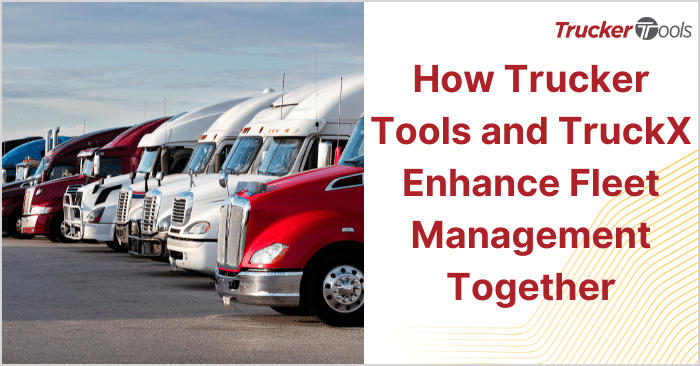Freight brokers play an important role in the U.S. freight and shipping industry, an $800 billion industry that serves as the backbone of the American economy, with a whopping 70 percent of all U.S. domestic freight tonnage transported by commercial truck. Freight brokers and freight brokerages are instrumental in connecting companies that need to ship products by commercial truck with trucking companies that have the trucks available to move those shipments. Given the massive size of the industry and projections that the global freight brokerage market will reach more than $41 billion in 2024, it’s a great time to consider starting your own freight brokerage.
What You Need To Start a Freight Brokerage
1. Industry Experience and Training
One of the first steps you’ll need to take is to get some industry experience and/or training. While there is no formal training or experience requirement to become a freight broker, you do need a good base knowledge of transportation in order to succeed. Working as a logistics manager, trucker, dispatcher or in another role in transportation will give you a basic working knowledge of the industry. Keep in mind that brokerages vary by area of specialization and operational styles. Building your knowledge of these sub-specialties and operational approaches can help inform the approach you choose to take when starting your freight brokerage. Another way to build your industry knowledge is to take online or in-person freight broker certification classes, which typically last one to two months.
2. Register Business
Next, you’ll need to choose a name for your company and register your business with your state. You’ll need to figure out whether to register your business as a sole proprietor or partnership, or incorporate as an LLC (limited liability corporation) or corporation. Which legal structure you choose will impact how you file and pay taxes, so choose wisely!
3. Develop a Business Plan
Developing a business plan is next in working toward your goal of starting a freight brokerage. A business plan will help you:
- Identify a niche within the industry.
- Make it easier to apply for and secure lines of credit with a bank.
- Prepare for the challenges you might face, as a business plan includes researching markets and trends.
- Determine how your business operations will be run.
- Be more attractive to investors.
- Create benchmarks and goals that you’d like to achieve.
- Articulate your strategy for building a customer base and relationships with carriers.
The deeper in detail your business plan, the more prepared you’ll be when you launch your business. If you’ve never created a business plan before, you may want to connect with a local chapter of the U.S. Small Business Administration for assistance.
4. Get Broker License
When starting a freight brokerage, you’ll also need to register and apply for freight broker authority with the Federal Motor Carrier Safety Administration (FMCSA), the division of the Department of Transportation that regulates and oversees the trucking and freight brokerage industries. You can apply for your broker operating authority through the FMCSA’s website by submitting Form OP-1 and the filing fee of $300. It usually takes about 10 days for your license/authority to be approved. You’ll also need to register with the Unified Carrier Registration Program if you plan to conduct business across state borders.
5. Obtain Surety Bond
The FMCSA also requires a $75,000 surety bond or trust fund for freight brokerages. This bond (the BMC-84 bond) ensures that you have enough capital on hand in the event that your freight brokerage can’t meet its contractual obligations to shippers and carriers. You can purchase a surety bond from an insurance company or if you have the required cash on hand, you can create a trust to fulfill this requirement (BMC-85). It usually takes one to two business days to obtain a surety bond.
6. Get Insurance
While general liability and cargo insurance aren’t required by the FMCSA, most shippers will only work with your freight brokerage if you have both types of insurance policies in place for your business. General liability insurance protects you in the event that something goes wrong in your day to day operations, while cargo insurance insures the freight you’re brokering out to motor carriers. Some states also have their own insurance requirements that you must meet (see #8). You usually can get quotes on and secure insurance coverage within one day.
7. Obtain Processing Agent
You will need a processing agent in each state in which you do business as a freight brokerage, as well. In simple terms, a process agent agrees to accept court papers served on your behalf in each state in the event that you are sued. You have the option of either using an individual process agent in each state or choosing a national processing agent that provides services in all 50 U.S. states. You’ll need to formally declare your process agents by completing form BOC-3 with the FMCSA. Once filed, it can take three to four days for your paperwork to be processed.
8. State Requirements
Each state may have other requirements for freight brokers and freight brokerages that you must follow, as well. Check with your state government to determine if you must meet additional requirements at the state level, including insurance requirements. Keep in mind that if you plan to operate an asset-based freight brokerage in which you own and operate a fleet of commercial trucks, you will need to register with your state’s Department of Transportation.
9. Find Customers and Carriers
Once you’ve completed the above steps, you can turn your attention to building your book of business by finding shippers who are a good match for the services your brokerage provides. Your strategy for finding shippers can include warm and cold calls, direct mail, networking, digital marketing, using industry shipper lists and referrals (once you have a few customers who are happy with your services).
You can employ multiple strategies for finding carriers, as well, including making warm and cold calls, using smart load boards and asking for referrals from carriers who are already working with your brokerage.
Once you have a network of shippers and carriers, you’re ready to start brokering freight.
Inside Tip: Level up your brokerage by building productive, long-term relationships with carriers >>

How Long Does It Take To Start a Freight Brokerage?
While the timeline for starting a freight brokerage will vary according to your niche and the states in which you’ll be doing business, generally speaking it takes three to 12 months to get all of the necessary licenses and to provide documentation to FMCSA and state authorities.
How Much Does It Cost To Start a Freight Brokerage Business?
At the minimum, you need $75,000 to meet the surety bond requirement of starting a freight brokerage. You’ll also need a line of credit and/or cash reserves to pay for equipment, phone and internet service, insurance, licensing, technology, office setup and other start-up costs.
Benefits of Starting Your Own Freight Brokerage
Now is a great time to start your own freight brokerage because there is always demand for freight brokerage expertise in the field of transportation — and given the projected growth of the market, that demand isn’t likely to subside anytime soon. Starting your own freight brokerage means you can be your own boss and be the decision-maker for your business, which is an attractive possibility, as well. It’s important to remember that freight brokerages can be very profitable, too. According to Brush Pass Research, there currently are 1,000 freight brokerages with revenue of more than $10 million and 3,000 brokerages with revenue of more than $1 million.
Recent advances in real-time technology also have made it much easier to start and run a successful freight brokerage, even if you haven’t worked in transportation previously. Real-time digital load tracking, matching and booking technology help you reduce inefficiencies in your operations, simplify internal workflows, and build mutually beneficial relationships with shippers and carriers. Most of these real-time technologies can be easily scaled up when your business begins to grow. Investing in real-time tech early on in your business also can help you win shipper contracts and build a positive reputation in your freight brokerage niche.
For more on how to choose the right tech partner when getting your business up and running, read “Seven Questions To Ask a Prospective Technology Partner.”






